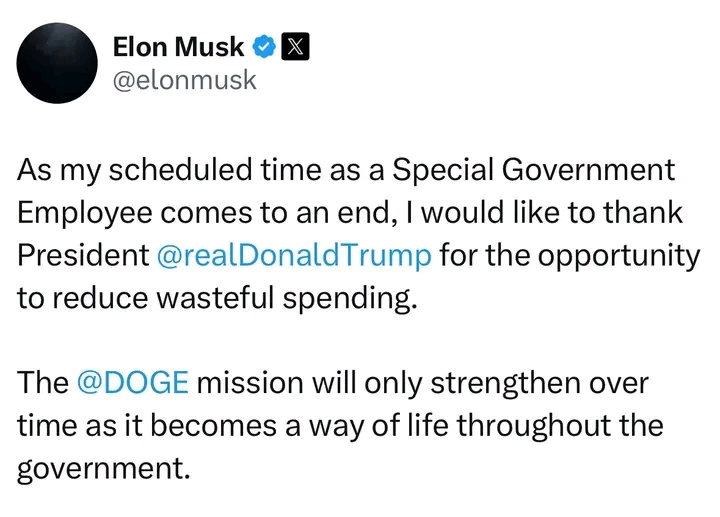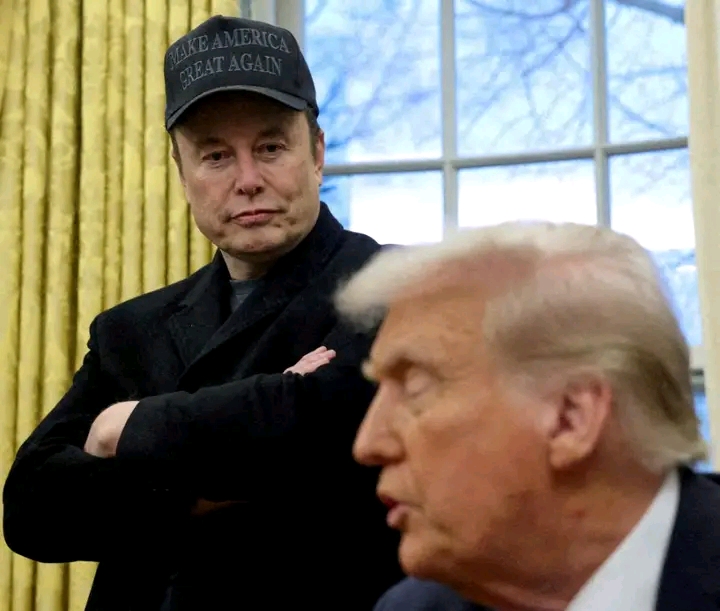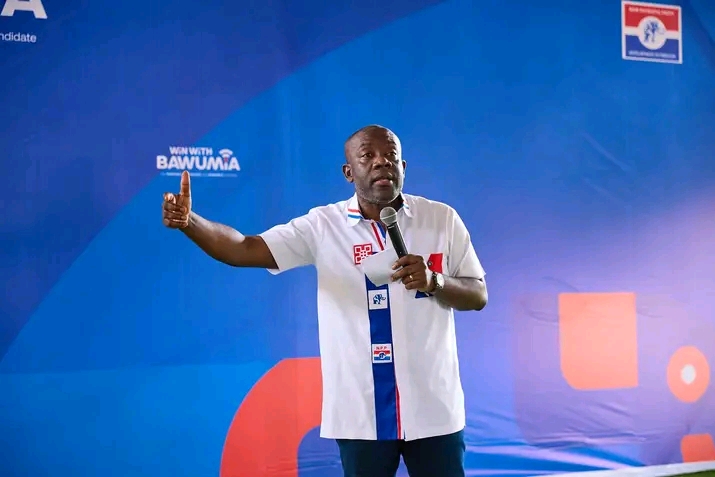By: Kenneth Appiah Bani.
Billionaire entrepreneur Elon Musk has officially concluded his role within the Trump administration, ending a 130-day tenure as a Special Government Employee overseeing the Department of Government Efficiency (DOGE). His departure marks a significant shift in his public responsibilities, as he now returns full time to managing his businesses, Tesla and SpaceX.
In a post on X (formerly Twitter) dated May 29, 2025, Musk expressed gratitude to President Donald Trump for the opportunity to serve, writing:
“As my scheduled time as a Special Government Employee comes to an end, I would like to thank President @realDonaldTrump for the opportunity to reduce wasteful spending. The @DOGE mission will only strengthen over time as it becomes a way of life throughout the government.”
Musk’s tenure at DOGE was marked by both aggressive reform initiatives and internal conflicts. He led high-profile cost cutting measures, including departmental downsizing and layoffs, aimed at reducing what he described as “entrenched inefficiencies” in federal agencies. Supporters praised his bold approach, but critics decried the harshness of his methods.
His exit comes just days after publicly criticizing a major spending bill endorsed by the Trump administration. Musk argued the package contradicted DOGE’s core objectives by significantly increasing the federal deficit. The criticism sparked a new wave of tension, further exacerbated by Musk’s public feud with Trump’s trade adviser, Peter Navarro, whom Musk called a “moron” over disagreements on tariffs and trade policies.
While the White House has yet to issue a formal statement on Musk’s departure, sources within the administration suggest that internal friction contributed to the early end of his assignment.
With DOGE’s leadership seat now vacant, questions remain about the future of the agency and whether its mission will continue with the same intensity. Musk, however, maintains that the vision he set in motion will endure.
The exit also coincides with a critical moment for Musk’s companies. Tesla is facing declining vehicle sales and increased competition in the electric vehicle market, while SpaceX is navigating delays in key space missions. Observers believe his renewed focus on these businesses could be a strategic move to stabilize and reposition them for growth.
As one of the most influential figures straddling the tech industry and politics, Musk’s brief yet impactful foray into public service is certain to fuel debates for months to come about government reform, private sector involvement in policy, and the fine line between innovation and disruption.







